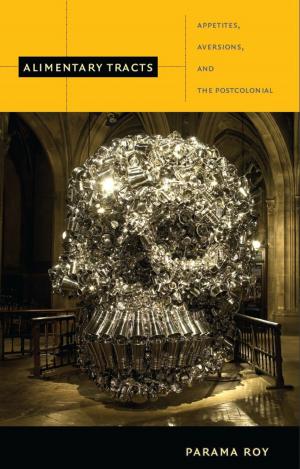The Gaucho Genre
A Treatise on the Motherland
Fiction & Literature, Literary Theory & Criticism, Central & South American| Author: | Josefina Ludmer | ISBN: | 9780822383567 |
| Publisher: | Duke University Press | Publication: | July 8, 2002 |
| Imprint: | Duke University Press Books | Language: | English |
| Author: | Josefina Ludmer |
| ISBN: | 9780822383567 |
| Publisher: | Duke University Press |
| Publication: | July 8, 2002 |
| Imprint: | Duke University Press Books |
| Language: | English |
Hailed when first published in Spanish in 1988 as one of the best contemporary examples of Latin American critical thought, Josefina Ludmer’s El género gauchesco describes the emergence of gaucho poetry—which uses the voice of the cowboy of the Argentine pampas for political purposes—as an urgent encounter of popular and elite tradition, of subaltern and hegemonic discourses. Molly Weigel’s translation captures the original's daringly innovative literary flavor, making available for the first time in English a book that opened a new arena in Latin American cultural history.
By examining the formation of a genre whose origins predated the consolidation of Argentina as a nation-state but that gained significance only after the country's independence, Ludmer elucidates the relationship of literature to the state, as well as the complex positionings of gender within the struggle for independence. She develops a sociological investigation of “outsider” culture through close textual analyses of works by Hidalgo, Ascasubi, Del Campo, Hernandez, Sarmiento, and Borges. This inquiry culminates in the assertion that language, marked as it is by the collisions of high and low culture, constitutes the central issue of Latin American modernization and modernism. Extensive annotation renders this edition of Ludmer's seminal study easily accessible for a North American audience.
The Gaucho Genre’s far-reaching implications will make it valuable reading for a varied audience. While teachers and students of Latin American literature and criticism will find it an important resource, it will also interest those concerned with the processes of nation-building or in the complex intersections of dominant and marginal voices.
Hailed when first published in Spanish in 1988 as one of the best contemporary examples of Latin American critical thought, Josefina Ludmer’s El género gauchesco describes the emergence of gaucho poetry—which uses the voice of the cowboy of the Argentine pampas for political purposes—as an urgent encounter of popular and elite tradition, of subaltern and hegemonic discourses. Molly Weigel’s translation captures the original's daringly innovative literary flavor, making available for the first time in English a book that opened a new arena in Latin American cultural history.
By examining the formation of a genre whose origins predated the consolidation of Argentina as a nation-state but that gained significance only after the country's independence, Ludmer elucidates the relationship of literature to the state, as well as the complex positionings of gender within the struggle for independence. She develops a sociological investigation of “outsider” culture through close textual analyses of works by Hidalgo, Ascasubi, Del Campo, Hernandez, Sarmiento, and Borges. This inquiry culminates in the assertion that language, marked as it is by the collisions of high and low culture, constitutes the central issue of Latin American modernization and modernism. Extensive annotation renders this edition of Ludmer's seminal study easily accessible for a North American audience.
The Gaucho Genre’s far-reaching implications will make it valuable reading for a varied audience. While teachers and students of Latin American literature and criticism will find it an important resource, it will also interest those concerned with the processes of nation-building or in the complex intersections of dominant and marginal voices.















